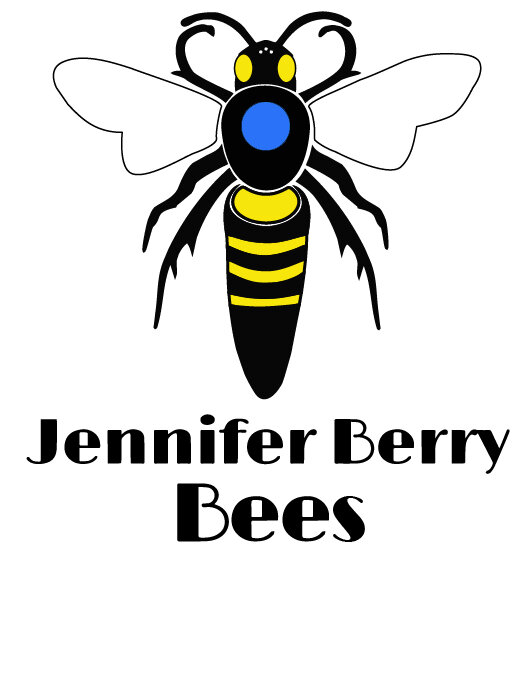Make Beekeeping Free and Accessible! (Success!)
/We need your help! We need 500 people to sign our petition by June 2 to make beekeeping free and accessible. The City of San Rafael is considering new limitations on beekeeping- imposing big permitting fees and tough restrictions for those who want to keep hives. This is an important issue- as San Rafael is the county seat in Marin.
The Marin Beekeeping Club found out about this issue only days ago, and there will be a hearing on the draft proposal in only a few days on June 2nd. Among the worst of it, permits would be $389 per year, with a limit of three hives, and only in single family housing with a large plot of land. In a nutshell, it puts socio-economic limits to who can own bees and who can't.
Our nearest big city, San Francisco, has no permits and no regulations. Here is what San Rafael proposes:
C. Bees. Keeping of bees on residential property shall be subject to review and compliance with the following standards:
1. The bee-keeping use shall be limited to Apis mellifera (European/western common honeybees) and must be an accessory use to a single-family dwelling;
2. The property owner must sign the application consenting to the bee-keeping use on the property;
3. The applicant shall notify all adjacent owners and occupants of contiguous developed property of the intent to keep honeybees at the subject property, and shall provide proof of notification to the community development department, planning division.
4. The maximum number of bee colonies (hives) that may be kept per single-family dwelling shall be limited to two (2) colonies on lots that are ten thousand (10,000) square feet and less in area, and four (4) colonies on lots greater than 10,000 square feet in area.
5. Permit holders shall operate and maintain the bee-keeping use in accordance with recognized best management practices that provide safe and healthy living conditions for the bees while actively conducting inspections of colony(s) and avoiding nuisance impacts on surrounding properties and persons (i.e., managing and controlling colonies to reduce occurrence of swarms) and protecting the public health, safety and welfare.
6. The applicant(s) shall submit written evidence that they have obtained bee-keeping training, which shall be subject to the satisfaction of the community development director.
7. A convenient and adequate source of water shall be available to bee colonies on the property at all times.
8. Bee colonies shall be maintained in hives capable of inspection to determine compliance with these standards, and shall consist of moveable frames and combs. Hives must be maintained in a sound and usable condition at all times.
9. A bee hive box (colony) shall only be located within a fenced, private residential yard area generally located behind the residential dwelling unit. In no event shall a bee hive box be located less than ten feet (10’) from any residential property line and less than twenty-five feet (25’) from any dwelling unit on an adjacent property.
10. A barrier of at least six feet (6’) in height consisting of a solid fence, wall and/or dense vegetation shall be installed and maintained between the bee hive colony(s) and all abutting properties. Fencing, walls and vegetation shall comply with the Fences and Walls regulations of Section 14.16.140.
11. Hive entrances shall face away from the nearest residential property line(s).
12. Bee colony(s) shall be promptly and properly removed if the permit holder discontinues the bee keeping use on the property.
13. Bee keeping permits are issued to the permit holder at the specific location identified on the permit, and shall not run with the land. A new bee keeping permit shall be required for a new bee keeping use to be operated by an existing permit holder at a different location, or for a new permit holder to keep bees on a site that has been previously used for bee keeping.
So why the new fees and heavy restrictions? Beekeeping has never been more difficult, more expensive, or more crucial to our communities than it is today. We need to clear the way to encourage people to do their part, not impose fees and fines. San Rafael isn't reacting to nuisance bees- in fact, there have been no complaints in the city.
We in Marin want San Rafael to be more reasonable and adopt the same standards as San Francisco. From the SF.gov website:
"Bee pollination plays an important role in agriculture contributing to productive crop yields and diverse ecosystems. Bee activity is addressed in two areas of the San Francisco Public Health Code to state that honey bees are not considered a wild or potentially dangerous animal and that honey bees are not considered a public health nuisance just because they’re bees.
San Francisco allows urban beekeeping without any specific permit requirements; however, bees can pose significant health and safety risks and urban beekeeping is subject to the law of nuisance and regulation by the Department of Public Health. Beekeepers must manage their colonies in a way that’s sensitive to surrounding areas and neighbors. If bees do create a nuisance situation, the Department of Public Health can issue citations and require mitigation of any hazard, which can include reducing the size of the colonies, moving the hives to another parcel, or requiring that all beekeeping operations in an area cease altogether."
San Rafael needs to adopt the same attitude. Please take the time to go online and sign our petition to keep the practice of beekeeping free and accessible.
Followup to this article: San Rafael is now a permit-free beekeeping city, and any problems will be handled by existing nuisance laws. Success, thanks to all who signed the petition and spoke at the city council meeting.


